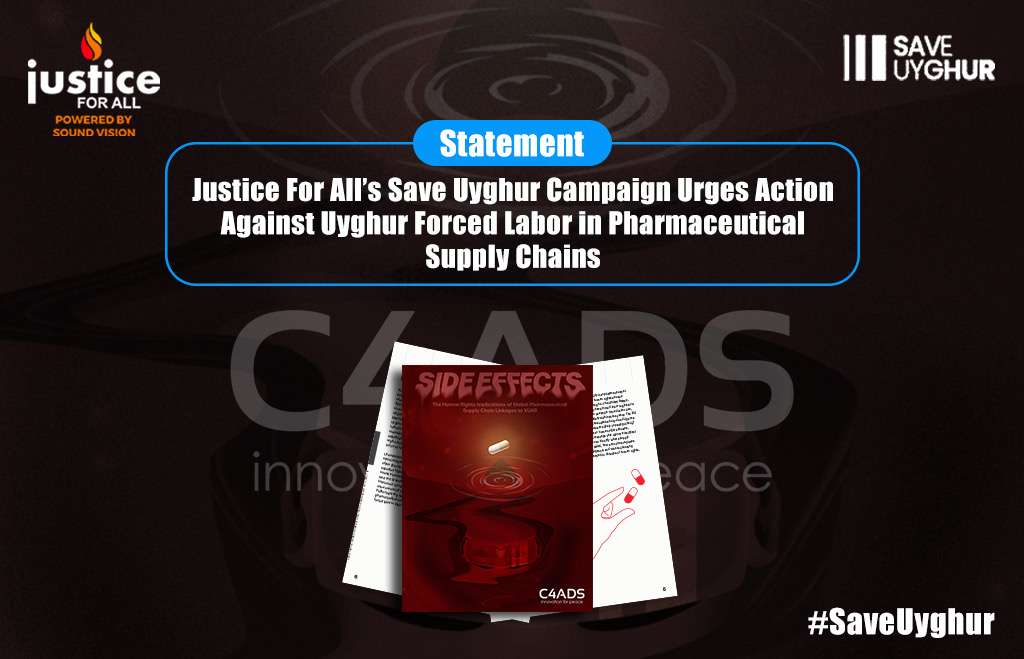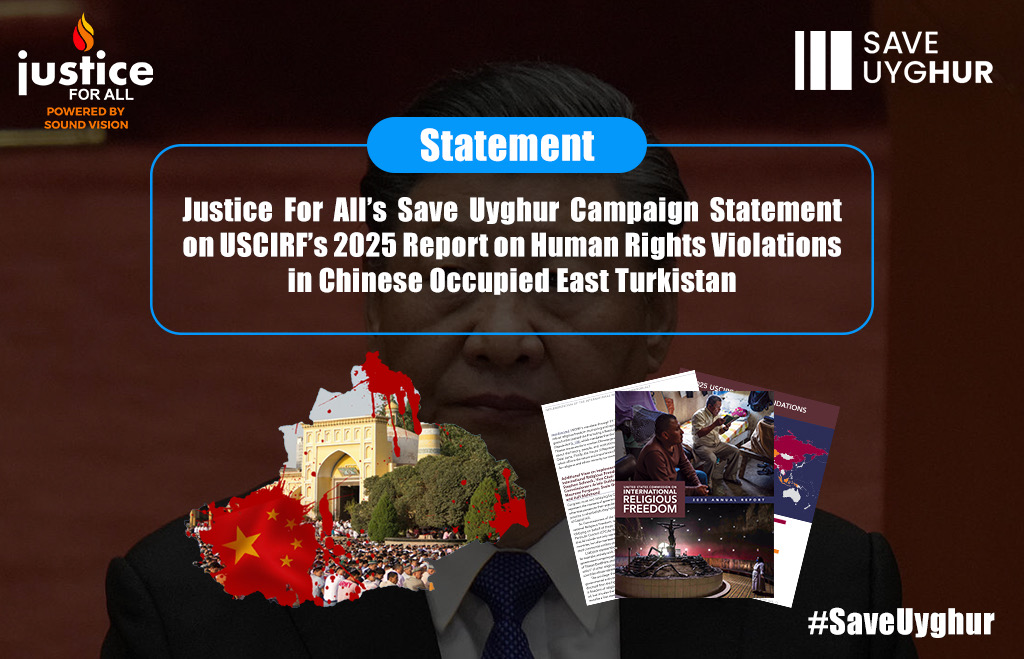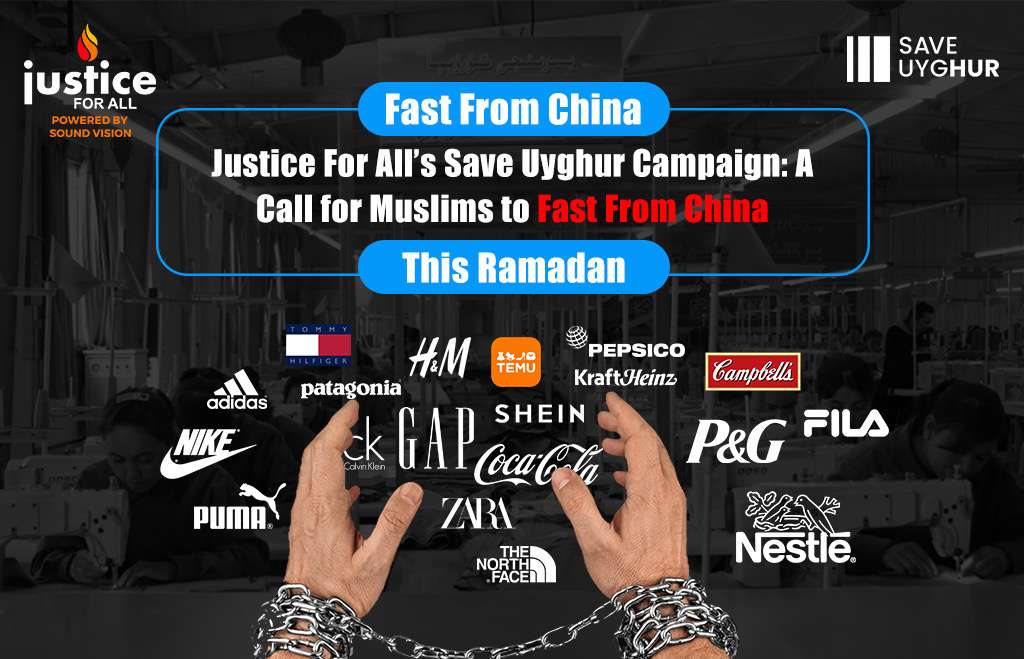Justice For All’s Save Uyghur Campaign commends the United States Commission on International Religious Freedom…
Justice For All’s Save Uyghur Campaign Urges Action Against Uyghur Forced Labor in Pharmaceutical Supply Chains

Justice For All’s Save Uyghur Campaign commends Mishel Kondi, a human security analyst at C4ADS, for her recent report that exposes troubling connections between the global pharmaceutical industry and the use of Uyghur forced labor in Chinese-occupied East Turkistan, also known by its colonial name, the Xinjiang Uyghur Autonomous Region (XUAR).
The international community has condemned the Chinese Communist Party’s repression against Uyghur and Turkic peoples that includes forced labor, mass detention and coercive labor practices. The U.S passed the Uyghur Forced Labor Prevention Act (UFLPA) in 2021, which aimed to block imports linked to forced labor in East Turkistan. Yet, Kondi’s report draws attention to the ways in which the pharmaceutical industry in the Uyghur region “has not been the focus of enforcement action to counter forced labor to date.”
Referring to “dark data environments, complex supply chains, and policy implementation obstacles,” the report argues that stakeholders are challenged to ensure their supply chains are free from forced labor and human rights violations. For instance, the report points out that companies such as Sinopharm and Xinjiang Deyuan Bioengineering Co., LTD, which are “tied to human rights abuses … remain part of global supply chains.” So China’s human rights abuses continue.
The report also draws attention to India’s important role in the global pharmaceutical supply chain. It notes India’s pharmaceutical purchases from East Turkistan-based companies, such as the importation of over 150 thousand kilograms of conjugated estrogen in the first 3 months of 2024.
Justice For All’s Save Uyghur Campaign calls for increased transparency and accountability within the pharmaceutical sector. We echo the report’s recommendations:
- Free and open access to data on manufacturers and importers of pharmaceutical products.
- Countries pass and implement legislation to limit the access to international markets that entities supporting forced labor have.
- Private companies take due diligence to look at the source of their pharmaceutical products and ensure they are not bought from companies who use forced Uyghur labor.
- Consumers make informed choices and not buy from companies that rely on forced Uyghur labor.
We will present these recommendations to state department officials and lawmakers on Capitol Hill to emphasize the need for a comprehensive approach to combat forced labor in the pharmaceutical industry.
Justice For All applauds Mishel Kondi and C4ADS’s report, which is a clarion call for action. We call on all stakeholders, including governments, private companies and consumers, to take a stand against forced labor and human rights abuses in the pharmaceutical industry. We must work collectively to ensure our supply chains are free from exploitation and that the rights of marginalized communities are upheld.
Resources:
1. Mishel Kondi, Side Effects: The Human Rights Implications of Global Pharmaceutical Supply Chain Linkages to XUAR (Washington: DC, C4ADS, 2024), 25.



